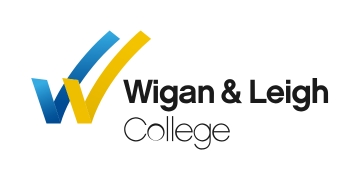A college has questioned the “rationale” of Ofsted inspecting them within days of the new academic year starting. However, others believe there are advantages to it – so, should the watchdog be visiting providers in September? Fraser Whieldon investigates
The Sheffield College (pictured) received an inspection between September 24 and 27, with inspectors reporting learners enjoy their education but leaders needed to quicken the pace of improvement at the college after its third consecutive grade three report.
It came just 15 days after the college officially opened for the 2019-20 academic year – a time when student inductions were still being carried out and normal teaching hours were only just getting under way.
Governors later questioned the “rationale for the timing of the visit”, according to minutes from a December board meeting, and discussed whether they could seek an early re-visit from inspectors.
The chair even met with the inspectorate’s deputy director for further education, Paul Joyce, to raise the issue.
Governors were said to be “pleased” Joyce “had listened to the college’s feedback and offered to engage further on the matters discussed”.
The college declined to comment any further about their concerns about the visit’s timing, but did say they welcomed Ofsted’s new education inspection framework and are “pleased grade three colleges will be given longer to improve”.
Following Sheffield expressing concerns, FE Week spoke to a number of sector leaders, as well as colleges and training providers which were inspected around the same time, and asked them what pros and cons are there to an inspection taking place at the start of a new academic year.
Should Ofsted stop inspecting in September?
The Association of Colleges’ director of education and skills policy David Corke thinks it would “always be sensible for inspections to be undertaken outside induction weeks” so that learners can settle in properly and staff can begin to embed their curriculum for the year.
But, he reasoned, Ofsted only has a narrow number of weeks during which to conduct an inspection because of holidays and exams.
North Warwickshire and South Leicestershire College was inspected at exactly the same time as The Sheffield College, but achieved a grade two.
One advantage of an inspection so early on in the academic year, according to NWSLC’s vice principal of quality Ben Crook, was that any messages to students given during induction are “fresh in their minds”.
Additionally, student attendance is higher and the energy levels of staff and students are “obviously higher at the start of the year”.
Another plus is that NWSLC can work on any areas identified as needing improvement throughout the year, whereas “if you wait six months after the start of the year for an inspection, you are constantly in this state of inspection preparation, so it can have a fatiguing effect”.
When asked, Crook did not go as far as to say that there should be certain times of year (when the college is open) when Ofsted should not inspect.
Another college that received a grade two after a September inspection was Bedford College Group.
Chief executive Ian Pryce said they were “surprised” to be visited so early in the year, but overall found the inspection, the inspectors and the new inspection framework “worked well for staff and students”.
He added: “We had no issue with the timing of our Ofsted. We were two years into a merger, which seemed a reasonable time frame to judge progress.”
FE Week also contacted Coventry College, which was inspected a week before Sheffield and also achieved a grade three, but they would only say they were “encouraged by the outcome of its recent Ofsted inspection”.
The benefits and downsides of a September inspection are less keenly felt in the independent sector, where they teach learners throughout summer.
N-gaged managing director Neil Brayshaw said it was “good to get it out of the way,” rather than having it “hanging over you”. N-gaged received a grade three after being inspected at the same time as Sheffield College.
Brayshaw has been at providers where they have been on constant “Ofsted watch”, which is “not good for anybody”.
Having also served as an inspector and said that he could not see much difference between providers being inspected in September and later in the year. “Stronger providers are ready for an inspection whatever time of year.”
What has Ofsted said?
Ofsted bullishly defended its policy when asked by FE Week if it would consider reviewing its timings, stating it “reserves the right to carry out an inspection or monitoring visit to any provider at any reasonable time”.
“Ofsted puts the interests of learners first, and we are keen to make sure that we see colleges and providers as they actually are,” a spokesperson said.
“If a provider is teaching or training and learners are learning, they are delivering a publicly funded service and may be subject to inspection.”
But, he added, they work with providers to ensure the time of an inspection is “reasonable,” and a college may request a deferral if there are extenuating circumstances.
The Sheffield College declined to disclose whether they had requested a deferral.








I work for one of the colleges inspected in September and, if the inspectors had come 6 weeks later, we would have got a 3 rather than a 2. New IT and MIS processes failed miserably, registers and enrolments were incomplete, but this could all be glossed over as still ongoing at the beginning of term rather than a the problem it was at Xmas.
Can you avoid this difference depending on the timing of inspections, probably not.
Given the new inspection focus on teaching and learning, OFSTED not considering it important to arrange inspection visits so that they have the best opportunity to engage with learners who are at that stage on their programmes, is surprising. I suspect workplace training providers are not surprised. Such providers deliver in the workplace and increasingly embrace new technology to engage flexibly often at distance with their learners. To facilitate a full and representative opportunity for OFSTED to engage with such learners who typically occupy full-time jobs and also their employers, is always a challenge. How is this challenge helped or made realistic by only giving two working days’ notice of the inspection in order to arrange this engagement? This makes no sense given that the aim should be to facilitate the best opportunity for OFSTED to meet with learners and not put unnecessary and no longer relevant barriers in the way of this!